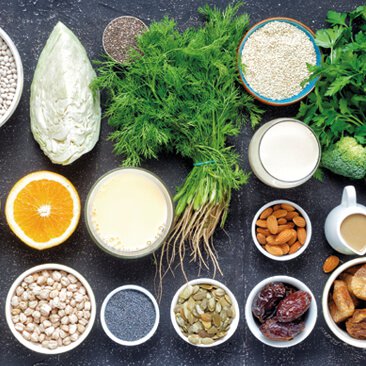How plant-based eating benefit our planet?

How plant-based eating benefit our planet?
Environmental benefits of plant-based eating
Did you know that what we eat can have a big impact on climate change? The food system accounts for one-third of all greenhouse gases and more than three-quarters of these emissions were associated with animal source foods consumed worldwide.1-2
Switching to a plant-based diet from a meat-based diet can greatly help to minimize our impact on the environment, as plant-based foods require less energy, land, and water resources to produce and are associated with much less greenhouse gas emissions, than those associated with the production of animal foods such as beef and dairy products.
With growing concerns about the environment and climate change, choosing to eat more plant foods and to include protein-rich soyfoods in your diet can be a powerful way to make a difference.
“Plant-based diets are more environmentally sustainable than diets rich in animal products because they use fewer natural resources and are associated with much less environmental damage.” – The Academy of Nutrition and Dietetics (3)
Going Plant-based for Our Planet can help cut down emission
By shifting to a plant-based diet, diet-related GHG emissions can be reduced by 41% to 71%, according to FAO report.2

-41%
By shifting to flexitarian

-71%
By shifting to vegan

-2°C
Is crucial to fight climate change
References
- Crippa M, Solazzo E, Guizzardi D, Monforti-Ferrario F, Tubiello FN, Leip AJ. Food systems are responsible for a third of global anthropogenic GHG emissions. Nature Food. 2021 Mar;2(3):198-209.
- FAO, IFAD, UNICEF, WFP and WHO. 2020. The State of Food Security and Nutrition in the World 2020. The State of Food Insecurity and Nutrition in the World. Rome, FAO.
- Melina V, Craig W, Levin S. Position of the Academy of Nutrition and Dietetics: vegetarian diets. Journal of the Academy of Nutrition and Dietetics. 2016 Dec 1;116(12):1970-80.
- Willett W et al. Food in the Anthropocene: the EAT–Lancet Commission on healthy diets from sustainable food systems. The Lancet. 2019 Feb 2;393(10170):447-92.
Other Insights
Disclaimer
This fact sheet by Vitasoy International Holdings Limited is designed for informational purposes only and it is not intended to serve as medical advice. The information provided here should not be used as diagnosing or treating a health problem or disease. It is not a substitute for professional care. Always seek the advice of a physician or other qualified health provider with any questions you may have regarding a medical condition. Never disregard professional medical advice or delay in seeking it because of something you have read on this factsheet. Photocopying this publication in its original form is permitted for educational purposes only. Reproduction in any other form without the written permission of Vitasoy International Holdings Limited Is prohibited. Acknowledgement of contribution: Mark Messina, Ph.D., M.S.




